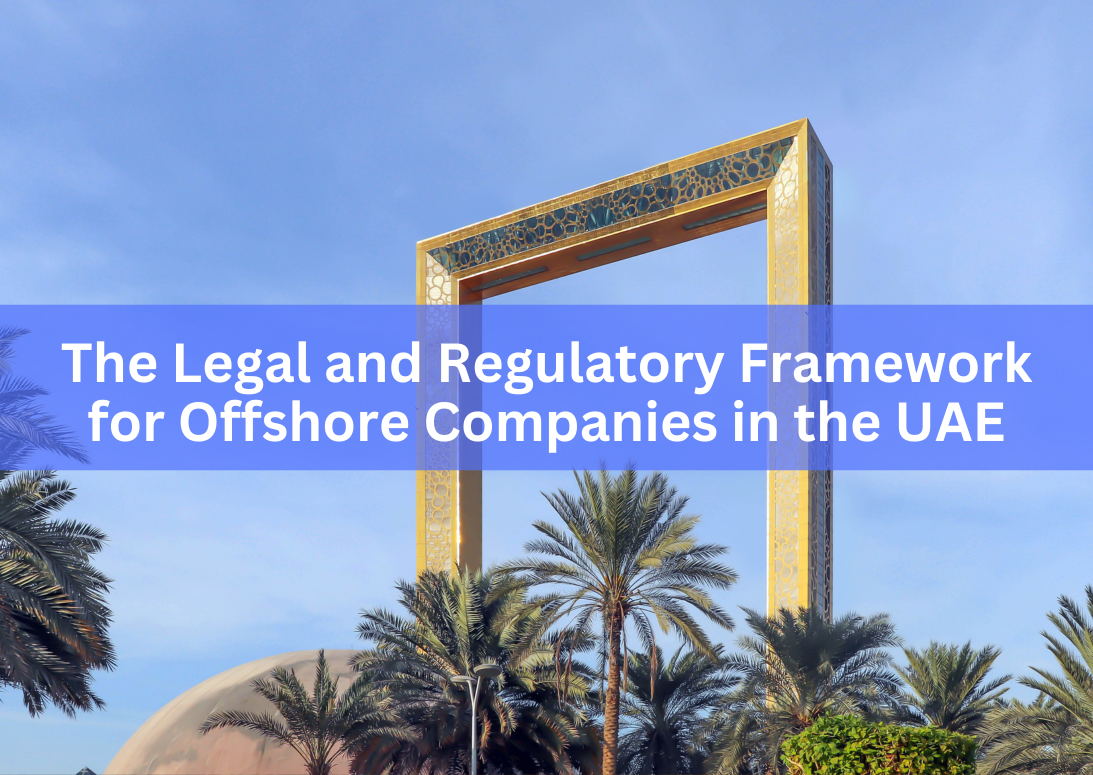The Legal and Regulatory Framework for Offshore Companies in the UAE

The UAE has become a global hub for business, attracting investors and entrepreneurs from around the world. Among the various business structures available, offshore companies offer unique benefits, including tax advantages, confidentiality, and asset protection. This article explores the legal and regulatory framework governing offshore companies in the UAE, providing insights into their formation, compliance requirements, and operational guidelines.
1. Understanding Offshore Companies in the UAE:
- Offshore companies in the UAE are entities established under specific jurisdictions that offer favorable conditions for international business operations. These companies are distinct from onshore and free zone companies, primarily serving as vehicles for holding assets, international trade, and investment activities.
2. Key Offshore Jurisdictions in the UAE:
The UAE has two main jurisdictions for offshore companies:
- Jebel Ali Free Zone Authority (JAFZA): Located in Dubai, JAFZA offers a well-regulated environment with robust infrastructure and business-friendly policies.
- Ras Al Khaimah International Corporate Centre (RAK ICC): Situated in Ras Al Khaimah, RAK ICC provides a flexible and cost-effective offshore jurisdiction with streamlined company formation procedures.
3. Legal Framework:
Offshore companies in the UAE are governed by specific regulations designed to provide a secure and efficient business environment.
- JAFZA Offshore Companies Regulations: JAFZA offshore companies are regulated by the Jebel Ali Free Zone Offshore Companies Regulations 2018, which outline the formation, management, and operational guidelines for these entities.
- RAK ICC Offshore Companies Regulations: RAK ICC offshore companies operate under the RAK ICC Business Companies Regulations 2018, offering similar provisions tailored to the jurisdiction's requirements.
4. Formation and Registration:
The process of forming an offshore company in the UAE involves several steps:
- Name Reservation: Choose a unique name for the company and obtain approval from the relevant offshore authority.
- Document Submission: Prepare and submit the required documents, including the application form, passport copies of shareholders and directors, and proof of address.
- Memorandum and Articles of Association: Draft and submit the Memorandum and Articles of Association, outlining the company's structure and operational guidelines.
- Registration and Licensing: Upon approval, the offshore authority will issue a Certificate of Incorporation, and the company will be registered and licensed to operate.
5. Compliance and Reporting Requirements:
Offshore companies in the UAE must adhere to specific compliance and reporting obligations:
- Annual Renewal: Offshore companies must renew their registration annually by submitting the required fees and documents.
- Financial Records: While offshore companies are not required to file audited financial statements, they must maintain accurate financial records.
- Anti-Money Laundering (AML) Compliance: Offshore companies must comply with UAE's AML regulations, including customer due diligence and reporting suspicious activities.
6. Benefits of Offshore Companies:
Offshore companies in the UAE offer several advantages:
- Tax Efficiency: Offshore companies are exempt from corporate and income taxes, providing significant tax savings.
- Confidentiality: Shareholder and director information is kept confidential, enhancing privacy and security.
- Asset Protection: Offshore companies provide a robust structure for protecting assets from potential risks and liabilities.
- Ease of Operations: Simplified incorporation and administrative procedures enable quick and efficient business setup.
7. Restrictions and Limitations:
Despite their benefits, offshore companies in the UAE face certain restrictions:
- Local Business Activities: Offshore companies are not permitted to conduct business within the UAE mainland. They are primarily used for international operations.
- Physical Presence: Offshore companies are not required to have a physical office in the UAE, but they must have a registered agent and address.
Offshore companies in the UAE offer a strategic solution for international business operations, providing tax advantages, confidentiality, and asset protection. Understanding the legal and regulatory framework is crucial for ensuring compliance and leveraging the benefits of this business structure. By adhering to the guidelines and requirements set forth by JAFZA and RAK ICC, businesses can successfully establish and operate offshore companies in the UAE, contributing to their global growth and success.
Get In Touch
Location
Phone Number
+971-551273479


